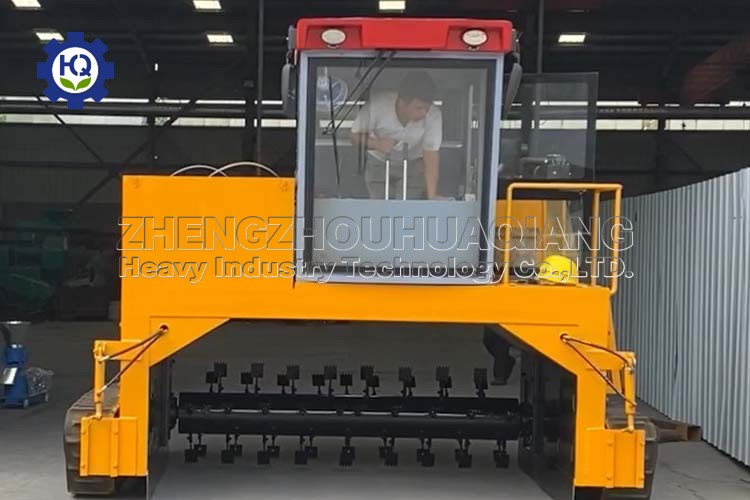A self-propelled tipping machine is a specialized mechanical equipment used for organic waste composting treatment. Its main function is to achieve the flipping and mixing of organic waste through automation system control, promoting the composting and fermentation process. The following is the working principle of a self-propelled stacker:
Mobile performance: Self moving stackers usually have the ability to drive independently and can move freely between compost piles. This mobility allows it to cover large areas of composting sites and can handle multiple compost piles as needed.
Transmission system: The self-propelled stacker is equipped with a transmission system inside, including the engine, transmission device, etc. The engine provides power, and the transmission device transfers power to the wheels or tracks to achieve the driving and operation of the machine.
Flipping device: The self-propelled tipping machine is equipped with a tipping device, usually composed of a rotating mixer or bucket. These devices can flip and mix compost while moving, promoting the decomposition and conversion of organic matter.
Automation control system: The self-propelled stacker is equipped with an automation control system, which can achieve autonomous operation of the machine through sensors and program control. These control systems can monitor the temperature, humidity and other parameters of the compost pile, and adjust the working status of the turner according to preset conditions to achieve the best composting effect.
Safety protection system: In order to ensure operational safety, self-propelled stackers are usually equipped with safety protection systems, including emergency stop buttons, tilt sensors, etc. Once abnormal situations are detected, the machine can be stopped in a timely manner to ensure the safety of operators and equipment.
In summary, the self-propelled tipping machine achieves automatic treatment of compost piles through autonomous driving and automation control system, improves production efficiency and operational safety, and is an important equipment in organic waste treatment and organic fertilizer production.